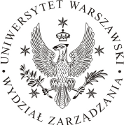Reviewing Procedure
All submitted articles are reviewed initially by the Editors (the pre-selection procedure), and those selected in the course of this procedure are forwarded to reviewers.
Each article is reviewed in a double-blind review process by two independent reviewers assigned by Editors.
A review is made in writing and ends with the reviewer’s decision on the rejection or admission for publication (review sheet form).
Upon receipt of the review, the editorial secretary informs the authors about the details of reviewers’ comments on the articles and the final decision on the publication (taken by the editor-in-chief and the thematic editor of the issue).
Criteria for accepting or rejecting a manuscript: matching the main topic of the issue; originality of the research method used and of presenting the subject; reliable presentation of previous research; the quality of own research (if applicable); validity of research/theoretical considerations; correct facts, methodology and reasoning; text contribution to the discipline development; selection of literature.
Editors do not return papers that have not been accepted for publication.
A full list available on the website.
Reviewers’ responsibilities
Editorial decisions
The reviewer supports the Editor-in-Chief in taking editorial decisions and may also assist the author in improving his/her work.
Feedback
Each selected reviewer who cannot review the paper or knows that rapid preparation of a review will not be possible should inform the editorial secretary.
Objectivity standards
Reviews should be objective. Personal criticism of the author is deemed inappropriate. Reviewers should clearly express their views, supporting them with appropriate arguments.
Confidentiality
All reviewed papers must be treated as confidential documents. They may not be showed to or discussed with persons other than the authorized editorial secretary.
Anonymity
All reviews are anonymous and the Editorial Board does not make authors’ personal data available to reviewers.
Disclosure and conflict of interest
Confidential information or ideas that emerge as a result of the review must be kept confidential and may not be used for personal benefit. Reviewers should not review works involving a conflict of interest due to the relationship with the author, company or institution connected with the work.
Confirmation of sources
Reviewers should identify publications not referred to by the author of the paper. Any claim that an observation, source or argument has been previously discussed should be supported by an appropriate quotation. The reviewer should also inform the editorial secretary of any significant similarity, partial overlapping of the content of the reviewed paper with any other published work that is known to the reviewer or of suspected plagiarism.
